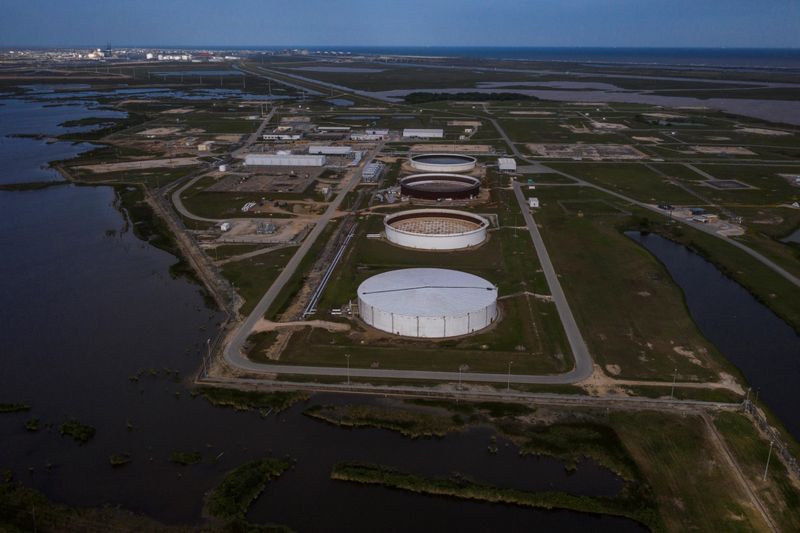By Sonali Paul
MELBOURNE (Reuters) - Oil fell in early trade on Wednesday after industry data showed U.S. crude oil stocks rose last week, defying expectations for a decline, and U.S. President Donald Trump rattled markets by threatening not to sign a long-awaited COVID-19 relief bill.
U.S. West Texas Intermediate (WTI) crude futures fell 46 cents, or 1%, to $46.56 a barrel at 0142 GMT, while Brent crude futures dropped 46 cents, or 0.9%, to $49.62.
Both contracts fell nearly 2% on Tuesday, in a second straight session of declines, with Brent just managing to settle above $50 ahead of the release of the data from the American Petroleum Institute (API).
API reported crude inventories rose by 2.7 million barrels in the week to Dec. 18, compared with analysts' expectations in a Reuters poll for a decline of 3.2 million barrels.
"Rubbing salt in the oil market wounds today, oil prices lurched lower after yet another inventory build that was very much bearish to consensus," Axi chief market strategist Stephen Innes said in a note.
Distillate stocks, which include diesel, heating oil and jet fuel, rose by 1 million barrels, also a surprise against expectations for a drawdown of 904,000 barrels.
However, gasoline stocks fell by 224,000 barrels, against expectations for a build of 1.2 million barrels.
Oil fell further after Trump threatened not to sign an $892 billion coronavirus relief bill, saying he wants Congress to increase the amount in the stimulus checks which lawmakers approved on Monday.
COVID-19 cases continued to surge in the United States, with more than a million new cases in just six days, and Americans were warned again to avoid travelling for Christmas, further dampening fuel demand.

"If the U.S. goes back anywhere near the edge of the COVID-19 lockdown abyss, it could be lights out for the oil rally for at least another 4-8 weeks, not to mention a big price wipe-out," Innes said.